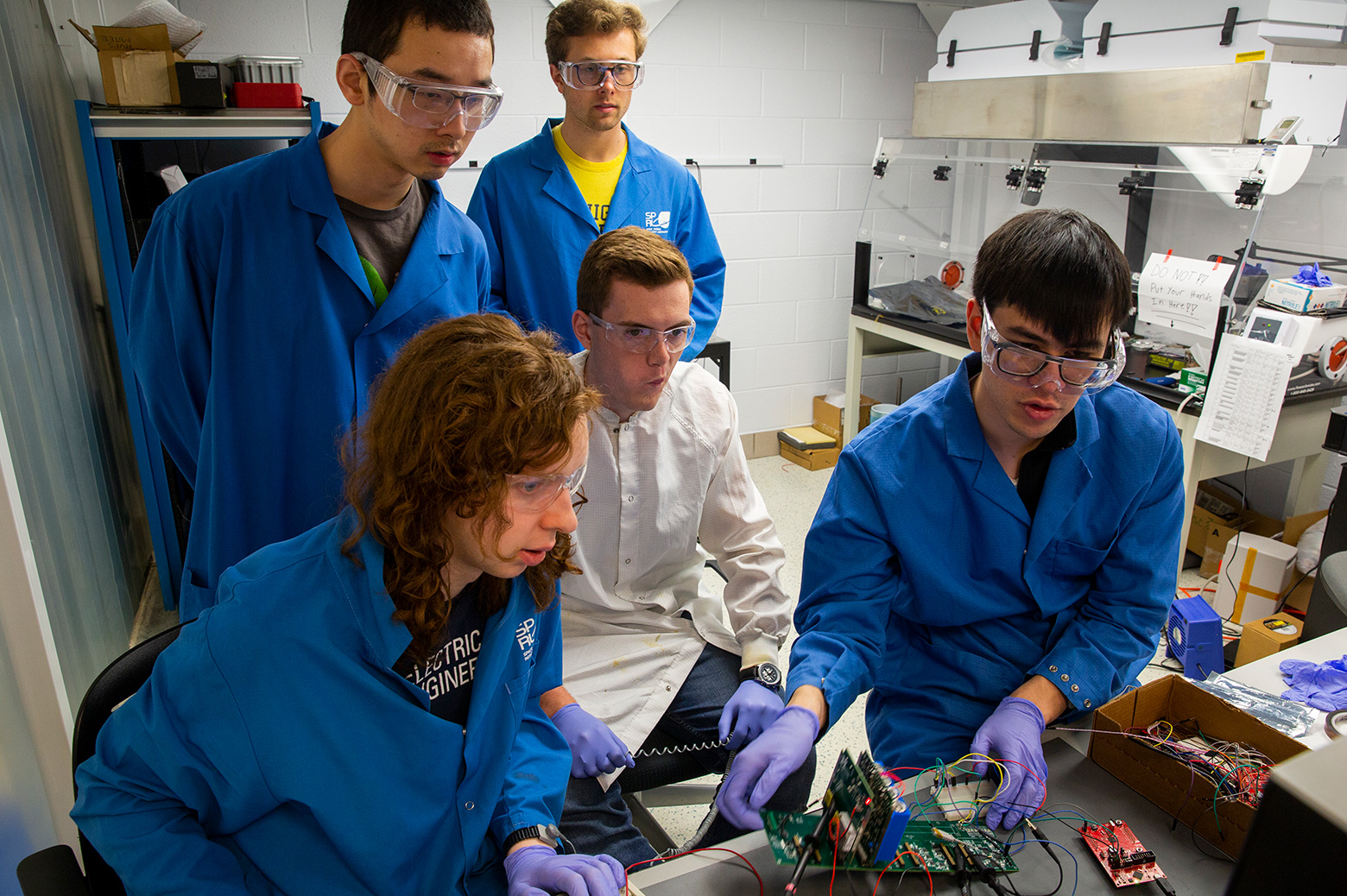84 internships and research fellowships for the pandemic summer
When summer internships fell through, Michigan Engineering staff scrambled to make sure students would still have access to experiential learning.

 Enlarge
Enlarge
With many students facing the cancellation of their summer plans to work as engineering interns, the Multidisciplinary Design Program has rushed to fill the gap. Cobbling together resources from inside and outside U-M, the program team created 54 paid internships and research fellowships, and 30 additional unpaid positions each mentored by U-M faculty.
“Making rent for the summer is important, but equally important is how well developed you are to enter the workforce,” said Gail Hohner, director of the Multidisciplinary Design Program. “Growth experiences help our students be competitive on a national scale. You work in a faculty research team or at Northrup Grumman, ProQuest, or J.P. Morgan, that’s bankable when you look for your first job.”
The Multidisciplinary Design Program (MDP) connects undergraduate and master’s students from across the University with faculty members, industry partners and nonprofits, providing the students team-based project experience in engineering.
Cade Wright, a senior in electrical engineering, has worked in both technical and leadership capacities through MDP on the Miniature Tether Electrodynamics Experiment, or MiTEE, a project building a small satellite that will be launched into space and led by Brian Gilchrist, a professor of electrical engineering and computer science.
“It’s crucial to a student’s development to have experience with both the technical and professional aspects in these types of programs. I believe having the ability to do both is what defines most successful people,” said Wright, who says the experience helped him land his current internship with Northrup Grumman. “As subsystem leads and chief engineer, I developed my soft skills and ability to work in a multidisciplinary environment.”
When the internships and summer plans for many of the students fell through, Hohner and her colleagues significantly scaled up their previous summer program of 15 to 20 research students. Trish Koman, MDP program manager, augmented the 2019 program of weekly seminars and workshops to include virtual team-building activities, helping farflung participants maintain their community. Students are working in eight different time zones, having gone home due to COVID-19.
ProQuest, a digital library and data company, is a long-time partner of the university and the program. Kevin Hastie, director of technology at ProQuest, explained that the company gives back to the university by helping students develop their skills, while also benefiting from the talent and fresh training that students bring—particularly in emerging fields such as data science and artificial intelligence.
“Though it took us some time to confirm some logistical details, we never considered cutting the program,” said Hastie. “As it happens, we actually were able to expand our internship offerings to students when we heard that many of them lost other opportunities.”
To fund participants, Hohner’s team drew on Michigan Engineering’s experiential learning funds, earmarked for first-generation college students as well as participants from low- and middle income families. These funds are intended to help level the playing field for students who can’t afford to pursue enrichment activities that give more privileged peers a leg up once they enter the job market.
The program also spent from its own gift fund, which it can use for strategic interests in the service of the common good. Keeping students on track to get a rich education fits that purpose. They also received support from contacts in industry who could fund all or part of a student’s modest stipend.
Although funding was limited, Hohner’s team made sure that students who wished to continue their projects unpaid could do so. With a flexible schedule, the program doesn’t prevent students from seeking other summer employment.
In total, MDP projects include 48 students (29 funded) on 10 faculty research student teams and 36 students (25 funded) working on 16 different industry projects.
 MENU
MENU 
